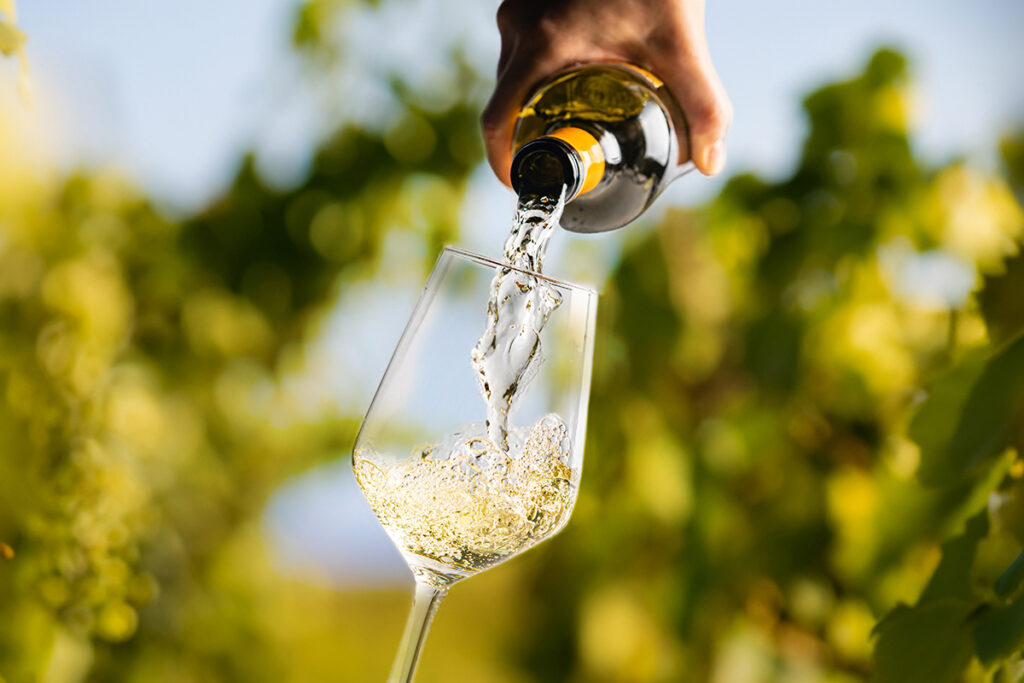France’s wine industry is preparing for economic hardship after a new 20% tariff imposed by President Donald Trump threatens to undermine exports to the United States, the country’s largest market for wine.
Tariff Sparks Concern Among Producers
The decision to implement a 20% tariff on European wine, Champagne, and spirits has drawn sharp criticism from French officials and widespread anxiety among wine producers. French President Emmanuel Macron warned of the “massive” repercussions during a meeting with key industry representatives on Thursday, calling the tariffs both “brutal and unfounded.”
Among those most affected is Vincent Dampt, a third-generation winemaker in Chablis, Burgundy. Dampt, who exports roughly 30% of his production of around 25,000 bottles to the United States, described the news as “bad,” though he noted relief that the previously threatened 200% tariff was not enforced.
“But it could be worse,” Dampt said. “I was really stressed with the possibility of having this 200% tariff.”
Trade Tensions Escalate
The new tariff follows a warning issued last month by the Trump administration, which threatened significantly steeper penalties if the European Union moved forward with retaliatory measures against American whiskey. The tit-for-tat dispute marks another chapter in ongoing trade tensions between the United States and the EU, many of which were reignited during Trump’s return to the presidency.
Dampt expressed hope that the conflict could still be resolved diplomatically, stating that a trade war would be detrimental to both sides. “We’re not at school,” he said. “If you answer too quickly with the same violence, it’s not constructive.”
Like many in his region, Dampt is already under pressure. Last year, he lost 50% of his harvest due to severe weather, including hail and frost. Now, he faces the difficult choice of either raising prices in the U.S. market or slashing profits to stay competitive.
“There’s only one way to stay in the U.S. market: cut prices,” he said. “But it’s not an easy thing to do.”
Economic Impact on the Wine Sector
The Bourgogne Wine Board estimates that the new tariff could cost Burgundy’s wine industry up to 100 million euros in lost export revenue. In a statement, the organization acknowledged that while the tariff is damaging, it is less catastrophic than the originally proposed hike.
“While this new measure will affect exports, potentially costing Bourgogne wines up to 100 million euros, it will not bring trade to a sudden halt, as would have been the case with higher tariffs,” the board said.
According to the Comité Européen des Entreprises Vins (CEEV), the United States accounted for 28% of the EU’s total wine export value last year, representing 4.88 billion euros ($5.36 billion). The scale of that market leaves few alternatives for producers if demand in the U.S. falls.
Marzia Varvaglione, president of the CEEV, warned of broader consequences for the industry. “The new tariff would create economic uncertainty and result in layoffs, deferred investments and price increases,” she said. “There is no alternative wine market that could compensate the loss of the U.S. market.”
Political Response from France
At a meeting held at the Élysée Palace, Macron condemned the decision in front of leaders from various sectors, including aeronautics, luxury goods, cosmetics, and food. He acknowledged that France may be less affected than Italy or Germany, where exports to the U.S. make up a larger share of GDP, but insisted the damage is still substantial.
“Exports to the U.S. represent 1.5% of France’s GDP,” Macron noted. “While others may be hit harder, it’s not a small thing.”
He also pointed out that the repercussions may ultimately be felt most sharply by the U.S. economy.
“One thing is certain,” Macron said. “With that decision, the U.S. economy and Americans, businesses and citizens, will emerge weaker and poorer than yesterday.”


